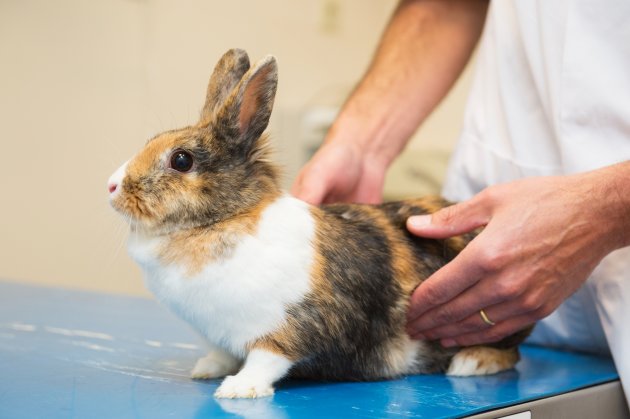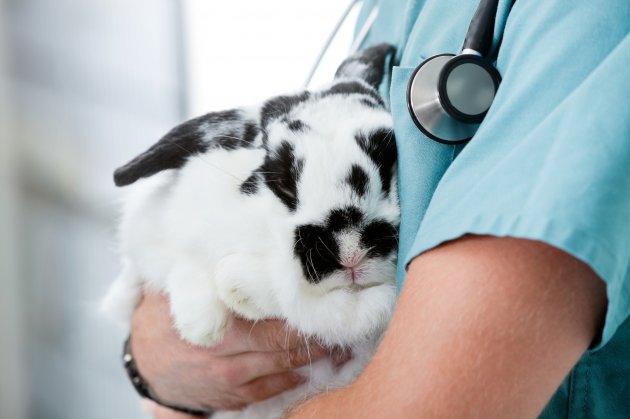Rabbits are very common pets for people to have. These animals are adorable and fluffy but can have a few health problems that any owner should be aware of. While rabbits are prey animals and do not show signs of illness until they are very sick, there are some very subtle signs that you can see to warn you that something could be going on with your rabbit. These are common problems seen in rabbits.
1. GI stasis
GI stasis is very common in rabbits. This is when something causes your rabbit's gastrointestinal tract to slow down and even stop. This may be due to a hairball or decreased food intake. If your rabbit ever stops eating, this is an emergency, and your rabbit needs to see a veterinarian as soon as possible. Rabbits with GI stasis have the following signs:
- Small hard fecal balls or no fecal balls at all.
- Your rabbit is not eating
- Not active
- Not drinking
If you notice any of these signs in your rabbit, take them to your veterinarian immediately. They will start your rabbit on medication to help your rabbit’s intestines start to move, food to syringe feed your rabbit and fluids to help keep your rabbit hydrated.
If your rabbit has been diagnosed with GI stasis, you will have to spend a lot of time for the first few days caring for your rabbit. After a few days, most rabbits will start to eat on their own, and their stool will return to normal.
The first thing many people notice with this disease is that their rabbit is not producing as many fecal balls as they should. This should be your first clue that your rabbit needs to see a vet that day.
A good way to help prevent GI stasis in your rabbit is to make sure that they are getting a high fiber diet and veggies. The fiber helps the GI tract stay regular, and the greens help provide the extra water.

2. Overgrown teeth
A rabbit's front teeth are continuously growing. Your rabbit will need hay and other chew sticks to help keep their teeth worn down. The motion of chewing on these things are constantly filing their teeth. Some rabbits do not like chewing on things, or their teeth do not line up properly, causing their teeth not to file down like they are supposed to.
When this happened, your rabbit’s teeth will become overgrown and need a veterinarian to file them down for them. Signs that your rabbit needs their teeth filed are:
- Teeth longer than usual
- Drooling
- Wet chin
- Not eating as much
- Lethargy
If you notice any of these signs, have your veterinarian evaluate your pet’s teeth. Many times, your rabbit will have to be sedated to allow your vet to examine your rabbit's mouth. If your rabbit’s teeth do need to be filed, your veterinarian will have specialized equipment to file their teeth. The back teeth are prone to getting sharp points on the outside of the teeth that can poke the side of your rabbit’s mouth. When your rabbit is sedated, your vet can file the sharp points back to being smooth. Many rabbits who need to have their teeth filed will need filing done every year. Many times, this can be prevented by feeding your rabbit hay and giving them appropriate things to chew on.
3. Snuffles
Snuffles or Pasteruellosis is a common upper respiratory disease seen in rabbits. Rabbits with snuffles will have the following signs:
- Discharge from eyes and nose
- Sneezing, thus the name snuffles
- Lethargy
- Not eating
If you notice these signs in your rabbit, take your rabbit to your veterinarian. They can prescribe your rabbit antibiotics to help clear the infection. Make sure that your veterinarian is knowledgeable about rabbits, as certain antibiotics are not safe for rabbits.
Snuffles is very contagious between bunnies. It is best to keep your sick bunny away from other bunnies and to keep any new bunny separate from everyone else for a few days.

4. Uterine Cancer
Uterine cancer is common in unspayed female rabbits. Common signs of uterine cancer in rabbits are:
- Bloody discharge from the vagina
- Mass felt in the abdomen
- Lethargy
If you notice these symptoms in your rabbit, have your rabbit examined by a veterinarian. Sometimes the bloody discharge could be a sign of a urinary tract infection. Your veterinarian can run a test to see if the blood is from a uterine mass or the bladder. Once the mass is found, the only way to remove the mass is to spay your rabbit. This will hopefully be done before the mass has a chance of spreading.
Most veterinarians recommend the best way of preventing uterine cancer is to spay your rabbit around 4 to 6 months of age. This helps decrease the chance of uterine cancer and eliminates the ability for your rabbit to reproduce. An exotic veterinarian should be able to spay your rabbit.
5. Ear Mites
Ear mites are commonly seen in rabbits, especially those who spend time outside. Signs of ear mites in your rabbits’ ears are:
- Shaking head
- Scratching at ears
- Debris in ears
If you notice any of these signs in your rabbit, take them to your veterinarian. Your veterinarian can take a sample from your rabbit’s ear and see if there are mites present. Many times, the treatment for these mites is to fully clean your rabbit’s ear and apply ear mite medications. There are different medications that you can apply to your rabbit each month to help prevent your rabbit from getting ear mites as well as fleas and ticks.
Conclusion
While rabbits can be very fun pets to own, they do have a few illnesses that any bunny owner should be aware of. Many of these signs can also be the same for a different disease. If you notice anything just a little off with your rabbit, it is best to have them examined by your veterinarian. Rabbits can get very sick very quickly, and it is always best to be proactive when it comes to your rabbit’s health.






0 Comments